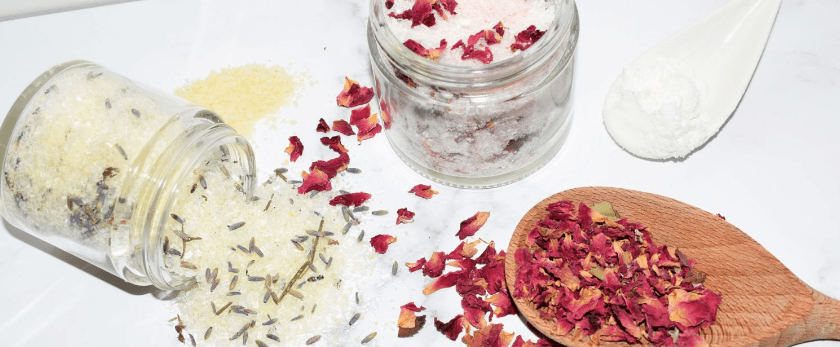Bath salts are a popular addition to a relaxing bath, providing a soothing and luxurious experience. However, many store-bought bath salts contain harmful chemicals and synthetic fragrances that can be damaging to both our health and the environment. Fortunately, making your own bath salts at home is a simple and sustainable alternative that not only benefits your well-being but also the planet.
In this article, we will discuss the negative impact of store-bought bath salts on the environment, the benefits of making your own bath salts, the materials needed, and step-by-step instructions on how to make your own eco-friendly bath salts.
The Environmental Impact of Store-Bought Bath Salts
Many store-bought bath salts contain harmful chemicals such as parabens, phthalates, and synthetic fragrances. These chemicals can have a negative impact on our health and the environment.
Parabens, commonly used as preservatives in cosmetics, have been linked to hormone disruption and have been found in marine life, causing harm to aquatic ecosystems. Phthalates, often used as plasticizers in cosmetics, have been linked to reproductive and developmental issues and have been found in water sources, posing a threat to aquatic life.
Synthetic fragrances, which are often made from a combination of chemicals, can cause skin irritation and allergic reactions. These fragrances can also be harmful to the environment, as they can accumulate in water sources and harm aquatic life.
In addition to the harmful chemicals, the packaging of store-bought bath salts also contributes to environmental pollution. Most bath salts come in plastic containers that end up in landfills or oceans, taking hundreds of years to decompose and causing harm to wildlife.

The Benefits of Making Your Own Bath Salts
Making your own bath salts at home not only eliminates the use of harmful chemicals but also reduces the amount of plastic waste. By using natural and eco-friendly ingredients, you can create a sustainable and environmentally friendly alternative to store-bought bath salts.
Homemade bath salts also allow you to customize the scent and ingredients according to your preferences and needs. You can choose from a variety of essential oils and natural ingredients to create a personalized and therapeutic bath experience.
Materials Needed
To make your own bath salts, you will need the following materials:
- Epsom salt or sea salt
- Baking soda
- Essential oils of your choice
- Dried herbs or flowers (optional)
- Glass jar or container for storage
- Measuring cups and spoons
- Mixing bowl
- Spoon or whisk
- Funnel (optional)
Step-by-Step Instructions
-
Start by measuring out 1 cup of Epsom salt or sea salt and 1/4 cup of baking soda into a mixing bowl. Epsom salt is known for its detoxifying properties, while sea salt is rich in minerals and can help soothe skin irritations.
-
Add 10-15 drops of your chosen essential oils to the salt mixture. You can use a single oil or a combination of oils, depending on your preference. Some popular choices for bath salts include lavender, eucalyptus, peppermint, and citrus oils.
-
If desired, you can also add dried herbs or flowers to the mixture for added fragrance and therapeutic benefits. Lavender buds, rose petals, and chamomile flowers are popular choices.
-
Mix all the ingredients together using a spoon or whisk until well combined.
-
Transfer the mixture into a glass jar or container for storage. If using a funnel, it can make the process easier and less messy.
-
Your homemade bath salts are now ready to use! Simply add a few tablespoons to your bath and enjoy a relaxing and eco-friendly soak.
Responsible Disposal
It is important to dispose of your bath salts responsibly to ensure a sustainable future. Here are some tips for responsible disposal:
- Reuse the glass jar or container for future batches of bath salts or for other purposes.
- If you must dispose of the jar or container, make sure to recycle it properly.
- Do not pour the bath salts down the drain, as they can clog pipes and harm aquatic life.
- If you have leftover bath salts, you can use them as a natural cleaning scrub for your bathtub or sink.
Conclusion
Making your own bath salts at home is a simple and sustainable alternative to store-bought options. By using natural and eco-friendly ingredients, you can create a personalized and therapeutic bath experience while reducing your environmental impact.
Remember to always dispose of your bath salts responsibly and consider reusing or recycling the materials used in the process. By making small changes in our daily routines, we can all contribute to a greener and more eco-friendly future. So why not give homemade bath salts a try and see the difference it can make for both you and the planet?










